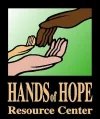September was first declared as National Suicide Prevention Awareness Month in 2008. Since then, September has been a time to acknowledge those affected by suicide, raise awareness, and connect individuals with suicidal ideation to treatment services. According to the CDC, each year more than 41,000 individuals die by suicide, leaving behind friends and family members to navigate the tragedy of their loss. Suicide is the 10th leading cause of death among adults in the U.S. and the 2nd leading cause of death among people aged 10-24 and these rates are increasing.
What are the warning signs of suicide?
If you are concerned about someone, ask yourself the following questions. Have they shown or shared any of the following:
- Talking about wanting to die, be dead, or about suicide, or are they cutting or burning themselves?
- Feeling like things may never get better, seeming like they are in terrible emotional pain (like something is wrong deep inside but they can’t make it go away), or they are struggling to deal with a big loss in their life?
- Or is your gut telling you to be worried because they have withdrawn from everyone and everything, have become more anxious or on edge, seem unusually angry, or don’t seem normal to you?
How to Help Someone You Know
If you know someone who is at immediate risk of suicide, call 911 right away. It can be difficult when someone you know expresses thoughts about suicide, but you can show support by doing the following:
- Talk. Your willingness to express your concern for the person in crisis can be the first step in getting that person help.
- Listen. Being an active listener is another way of reminding a person in crisis that they are not alone.
- Remain Present. Your physical and emotional presence in the person’s life makes a difference. If you are worried about their safety, get help from a mental health professional immediately.
- Call or text 988. When someone dials 988, they will be connected to the existing National Suicide Prevention Lifeline. This confidential support line is available 24 hours a day to provide free help to people in suicidal crisis or mental health-related distress.
By starting the conversation, providing support, and directing help to those who need it, we can help prevent suicides and save lives. If you or someone you know is struggling or in crisis, help is available. You are not alone.
